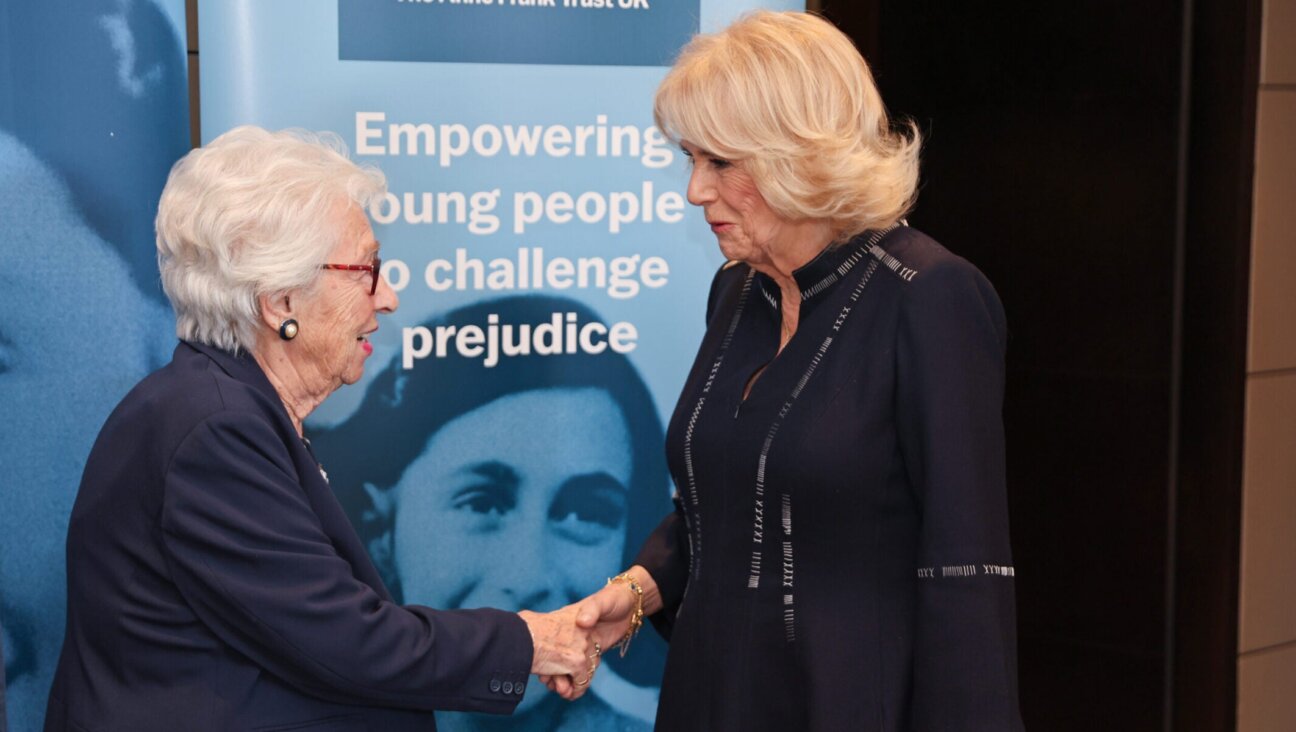LettersYIVO is my intellectual home. Its webinars on Hamas are misguided
After supporting YIVO for decades, it’s disheartening to see the institution turn away from the Yiddishist values that shaped it

A display of documents discovered in the YIVO Institute for Jewish Research archives. Photo by STAN HONDA/AFP via Getty Images
I have a decades-long connection to YIVO. It has been a critical institution in my emotional and intellectual life. It is, therefore, hard to express my disbelief, sadness and disappointment at learning from PJ Grisar’s recent Forward article about YIVO’s three upcoming webinars about “The Origins and Ideology of Hamas,” none of which will include Palestinian or Muslim panelists. To pretend that this kind of extended examination of Hamas is strictly an intellectual and historical endeavor with no political implications seems to me to be self-serving naivete.
In the 1950s, my mother began to work at YIVO on the first multilingual bibliography of the Holocaust. I studied in the Max Weinreich Center with the noted historian Prof. Isaiah Trunk, and was then mentored and encouraged by the renowned Yiddish linguists, Prof. Mikhl Herzog and Prof. Mordechai Schaechter. I taught for three summers in the Uriel Weinreich Yiddish program at Columbia. That is just the start of my long history as both a researcher at YIVO, and a great fan of its programming. If the institution is truly shocked by the perceptions of YIVO shared in backlash to this lecture series — which YIVO executive director Jonathan Brent billed as “exploring the deep affiliations of radical Islamist Hamas with the antisemitic propaganda of Nazi Germany and the Soviet Union”—then it reveals how out of touch it is with many of the Yiddishists who it has nurtured. Many of these people are now wrestling with how to deal with the implicit position that these Hamas sessions represent, while continuing to support YIVO overall.
Much of the revival of Yiddish, both as a language and as a cultural medium, was started and has been embraced internationally by Jews who chose to live outside of the Jewish mainstream. Yiddish to many was seen as “cool,” and often, Yiddishists were years ahead of that mainstream in allying themselves with LGBTQ+ and anti-racist struggles, and with promoting Jewish multiculturalism and peace with Palestinians. Many challenged the Zionist assumptions of their parents and formed alliances with Muslims and Palestinians. They did this work at the same time they helped sustain and promote YIVO.
In answering the criticism that no Muslims or Palestinian scholars were invited to participate on the panels, Jeffrey Herf, the curator of the series and one of its speakers, said: “This is a free country. And we are not obligated to present the views of our enemies.” Surely YIVO must know that not every single Muslim or Palestinian scholar supports Hamas. Surely YIVO also knows of the endless Muslim and Palestinian lawyers, scholars, and activists who are members of dozens of organizations inside and outside of Israel who have joined with both diaspora and Israeli Jews in trying to form coalitions, friendships and peaceful communities.
But beyond that exclusion, I wonder exactly what YIVO hopes these seminars will accomplish. A historical analysis of Hamas is important; it is the movement that perpetrated the atrocities in Israel on Oct. 7 from which the country is still reeling. I mourn and remember those who were murdered that day and those who are still hostages in Gaza. But if YIVO wants to help the community come to terms with the horrors of Oct. 7, it must also give space to the ongoing horrors in Gaza.
Will these webinars help participants understand those horrors? Will they make comprehensible the reason that (as of this writing) almost 28,000 Gazans have been killed, with many more believed to be uncounted in the rubble? In the article, Jonathan Brent asks why critics of the series assume that those running it have no empathy for the Gazans. Well, where has that empathy been expressed? Does having these webinars show empathy, or does it implicitly work to make the awful human toll in Gaza appear more acceptable?
Additionally, will these sessions make viewers more knowledgeable about the politics of the extreme right-wing in Israel, which worked to deteriorate Israeli-Palestinian relations for years leading up to this current war and which has engaged in unjustifiable escalations in violence since its onset? As well as learning about Hamas, don’t we also need to learn the history of the religious Zionism of the settlers with whom Prime Minister Benjamin Netanyahu is aligned?
YIVO’s planned sessions will not help us in better understanding the complexities of what is going on in 2024. It is important for Jews to understand not only what drives Hamas but also what drives Netanyahu and his ilk. Analyzing the history of both would be more educational than just talking only about Hamas — and more true to YIVO’s cultural and intellectual roots.
I have a lifelong attachment to YIVO and its mission. I feel protective of YIVO, and want it to thrive. It is not too late to change the plans for these programs and to admit to missteps.















